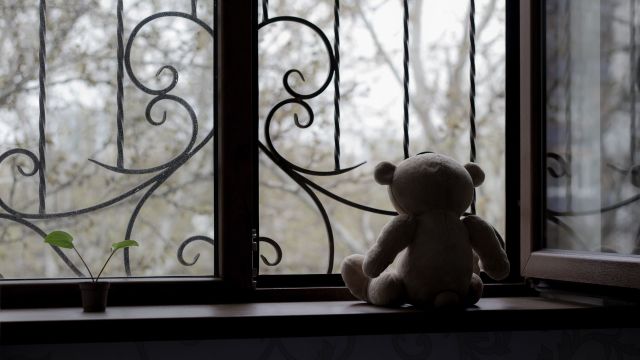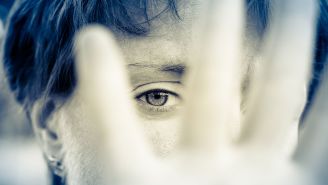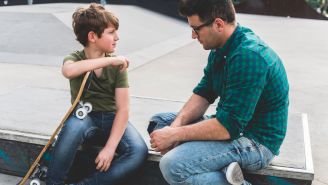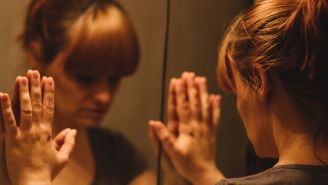Adults who have experienced early childhood abuse or neglect often find that the mental and physical consequences of this trauma persist well into adulthood.
The US Centers for Disease Control and Prevention (CDC) describes four categories of child maltreatment: physical abuse, sexual abuse, emotional abuse and neglect. The first three describe acts that directly cause harm, the potential for harm or the threat of harm. Neglect is the failure to provide for a child’s needs or to protect the child from real or potential harm.
Anyone who is close to a child can harm them, says Felicia Nevarez, LCSW, a social worker at Medical City Green Oaks Hospital in Dallas, Texas, who’s counseled victims of physical and sexual abuse, as well as witnesses of homicides. While abusers can be an aunt or uncle, a grandparent or even a babysitter, about 80 percent are parents, according to the CDC. Around half of reported child abuse cases involve kids age 5 and younger, and children under age 1 have the highest rates of victimization—about 22 out of every 1,000 children.
5 long-term effects of child abuse
Child abuse can take a toll on an adult’s physical, psychological, behavioral and societal wellbeing. The child’s age, type of abuse, relationship to the abuser and the severity and duration of the abuse all influence how it affects any given individual.
“Abuse of a child at the hands of caretakers or family members can often lead to feelings of confusion and concerns with trust for the rest of their lives,” says Nevarez. “This is a person who’s supposed to be taking care of and protecting [them], but is actually the one who is hurting or abusing them.”
- Depression: Depression is one of the most common long-term effects of child abuse, Nevarez says. “It feels [to the child] like the abuse is their fault. They can have a sense of unworthiness, which can lead to feelings of depression.” One study found that 54 percent of cases of depression and 58 percent of suicide attempts in women were connected to abuse, neglect or household dysfunction of some sort.
- Anxiety: Constant worrying is also very common, says Nevarez. “[Abused individuals] are not trusting of themselves, of their environment or of the world in general. They experience very intense feelings of anxiety throughout adulthood.”
- Relationship issues: When these children grow up, they may also have relationship issues and feelings of low self-esteem. “Children often believe they are the cause of the abuse, especially in cases of sexual abuse,” says Nevarez. “They have feelings of guilt or may feel they caused this to happen. In turn, they question themselves, who they are and what they are about.”
Children who have been abused may bring this perspective into their intimate adult relationships, which can lead to poor decisions, such as staying in abusive or otherwise unhealthy partnerships, says Nevarez. If a child grows up in a home where abuse is the norm, they’re more likely to remain in those relationships themselves, whereas someone who had a healthy childhood may choose to get out—and do so sooner—than someone who was abused.
- Unhealthy behaviors: Because abuse impacts feelings of self-esteem, Nevarez says it can also lead to unhealthy physical behaviors such as eating disorders, alcoholism, drug abuse, violence and even crime.
- Physical health problems: Child abuse can cause immediate physical harms to a child, such as broken bones, bruises, impaired brain development and abusive head trauma from being shaken or struck. And these physical problems can lead to serious health consequences—one in four shaken babies die and most experience some type of health issue.
As adults, these individuals are at higher risk for a number of serious medical conditions, including heart disease, chronic obstructive pulmonary disease, high blood pressure, diabetes, asthma, liver disease and obesity. They also have increased chances of unintended pregnancies and intimate partner violence.
What to do if you’ve been abused
First and foremost, know you don’t have to go it alone. “Reach out to a mental health provider and look at getting some counseling services,” Nevarez says. “There are many helpful and supportive groups for survivors of child abuse.” Adult Survivors of Child Abuse is one of the many associations offering various support groups and resources for survivors.
“The opportunity to speak about the abuse can help the person work through irrational beliefs that the abuse was their fault and they can gain an understanding that what occurred to them in childhood doesn’t have to continue to occur to them in adulthood.”
Nevarez says it’s important for victims to know these services are available. “Adults may think, ‘that was in my childhood, in my past, it’s not impacting me.’ But it really could have an impact they’re not recognizing. Being able to share and work through those traumas could be helpful to their wellbeing and ability to be productive adults.”
Support also helps break the cycle of abuse. As adults, victims of child abuse can learn different ways of behaving and an appreciation that violence and abuse are not healthy ways to interact with their children or intimate partners.
Finally, Nevarez says, it’s important for survivors to know that what happened to them is a part of who they are, but it doesn’t define them. They can move forward to lead healthy and productive lives.





